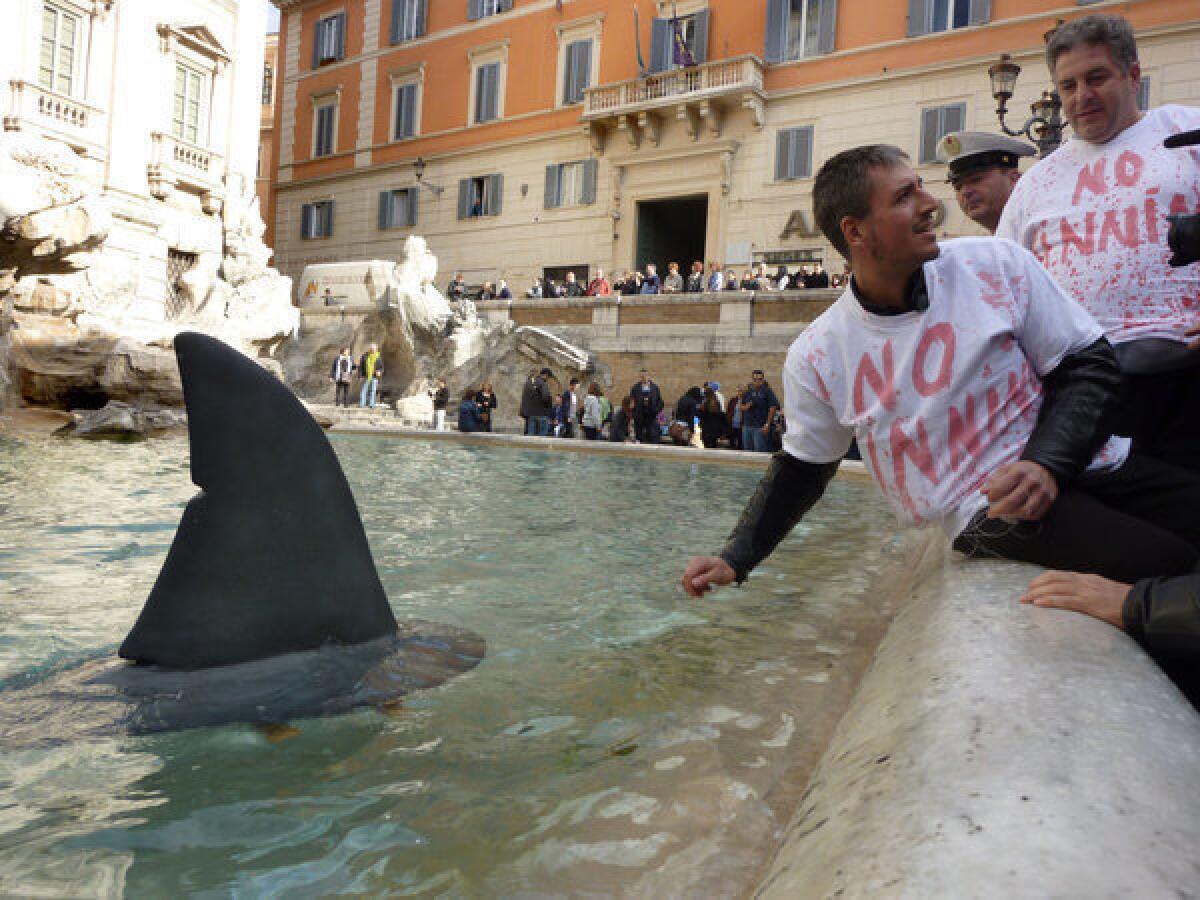European Union seeks to stop shark finning with ‘milestone’ vote

The European Union on Thursday sought to block fishermen from slashing off shark fins and dumping the fish back into the water, closing a loophole in its existing rules.
Environmentalists warn shark populations are in jeopardy as ships scoop them up solely for their fins, prized in Asia for the expensive delicacy of shark fin soup. Some fishermen hack off the fins because the shark body is much less valued, a practice shunned by conservation groups as wasteful and inhumane.
The European bloc has banned shark finning for nearly a decade but had allowed some vessels to remove fins at sea if they showed they could use all parts of the shark. Spain and Portugal used the loophole most often, according to the EU. Activists complained that because ships could take carcasses and fins to different ports, it was difficult to detect if they were dumping the bodies.
Now sharks must land at ports with their fins still attached, the European Parliament decided Thursday. Lawmakers overwhelmingly backed the resolution, with 566 out of 629 voting in favor.
The decision marks “a major milestone in ending the wasteful practice of shark finning,” said Uta Bellion of the nonprofit Pew Environment Group, praising the EU for joining Central America, the United States and Taiwan in adopting a “fins-attached” policy.
The rule must now be endorsed by EU fisheries ministers. Member states must also approve the draft law to make it definitive, Reuters news service reported Thursday.
Though European countries are not known for consuming shark meat, fleets from Europe sail the globe to catch and export the fish. Spain, France, Portugal and Britain rank among the top 20 countries for reported shark catches, according to U.N. Food and Agriculture Organization data; the Oceana conservation group says EU members are behind 14% of all such catches reported worldwide.
ALSO:
Syria rebels seize military base in oil-rich east, activists say
Gazans sweep up, head home as truce holds through first day
Judge questions former French leader Sarkozy in fundraising probe
More to Read
Sign up for Essential California
The most important California stories and recommendations in your inbox every morning.
You may occasionally receive promotional content from the Los Angeles Times.










